伊斯坦布尔:一座城市的记忆 1)Istanbul: Memories and the City
一座纸上的城堡,一个城市的忧伤。伊斯坦布尔巍然矗立在亚欧的边境,远远俯瞰着周围的喧嚣。曾经的辉煌与瑰丽,现在的衰落与破败,都变成了斑驳的时光碎片,在瞬间幻化成黑白。淡淡的忧伤通过每一段诗意文字,每一张黑白影像悄悄渗入每个人的心里。
每个人都有一座属于自己的城市,无论走得多远,只有那里才是灵魂的归属。伊斯坦布尔,是帕慕克的城市,也是每个伊斯坦布尔人的城市。因为爱之深,所以伤之切。昔日的兴盛至今历历在目,如今这座废墟之城依然在博斯普鲁斯海峡的斜阳中闪耀着帝国的余辉—它既是伊斯坦布尔人的骄傲,也是伊斯坦布尔人的伤痕。在这个东西方文化交融的地方,面向着茫茫的大海,伊斯坦布尔的未来将何去何从?
因为一本书,爱上了一座城市,爱它波澜壮阔的历史,更爱它忧郁彷徨的今天。在宁静的雨夜细读帕慕克的《伊斯坦布尔:一座城市的记忆》,静静地体会心灵深处的爱与忧伤。
Book Review 书评
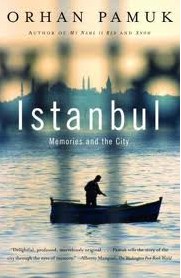 All happy cities resemble one another, to paraphrase what 2)Tolstoy famously observed of families, but each 3)melancholy city is melancholy in its own way. According to 4)Orhan Pamuk, the melancholy of Istanbul is hüzün, a Turkish word whose Arabic root denotes a feeling of deep spiritual loss but also a hopeful way of looking at life, “a state of mind that is ultimately as life-affirming as it is negating.” According to Pamuk, hüzün is not a 5)singular 6)preoccupation but a communal emotion, not the melancholy of an individual but the black mood shared by millions. “What I am trying to explain,” he writes in this delightful, profound, marvelously original book, “is the hüzün of an entire city: of Istanbul.”
All happy cities resemble one another, to paraphrase what 2)Tolstoy famously observed of families, but each 3)melancholy city is melancholy in its own way. According to 4)Orhan Pamuk, the melancholy of Istanbul is hüzün, a Turkish word whose Arabic root denotes a feeling of deep spiritual loss but also a hopeful way of looking at life, “a state of mind that is ultimately as life-affirming as it is negating.” According to Pamuk, hüzün is not a 5)singular 6)preoccupation but a communal emotion, not the melancholy of an individual but the black mood shared by millions. “What I am trying to explain,” he writes in this delightful, profound, marvelously original book, “is the hüzün of an entire city: of Istanbul.”
根据托尔斯泰对于家庭的著名阐释,我们可以引申出:所有幸福的城市都彼此相似,而每个忧伤的城市则各有各的忧伤。对于奥尔罕·帕慕克来说,伊斯坦布尔的忧伤则是“呼愁”—— 一个有着阿拉伯词源的土耳其词语。它表达的是一种心灵深处的失落感,但仍然用一种充满希望的方式来看待人生,“一种虽然消极但最终肯定人生的思想状态。”对于帕慕克来说,呼愁并不是一种使人异常专注的东西,而是一种普遍的情感;不是某个人的忧伤,而是千百万人共有的阴郁情绪。他在这本令人愉悦、意义深刻而创意非凡的书中写道,“我试着解释的是伊斯坦布尔整个城市的呼愁。”
Pamuk begins his inquiry with an image, a 7)kitschy portrait of a child brought back from Europe that was hung in the house of his aunt. “Look! That’s you!” the aunt would say to the 5-year-old boy, pointing at the picture. For Pamuk, the painted child (who resembled him slightly and wore the same cap he sometimes wore) became his double, another Orhan, leading a parallel life in another house in the same city; another self, whom he would meet in his dreams with shrieks of horror, or with whom he’d bravely lock eyes, each boy trying to stare the other down “in 8)eerie merciless silence.”
帕慕克的探索是从他姑妈家墙上的一张相片开始的,那是一张从欧洲带回来的俗气的儿童相片。“看!那是你呢!”他的姑妈有时候会指着相片对年仅5岁的他说道。对于帕慕克来说,相片中的孩子(这个孩子有点像他,所戴的帽子还与他有时戴的帽子一模一样)成了他的分身,另一个奥尔罕,在同一个城市的另一所房子里与他并行生活着。他总在睡梦中遇到另一个自己,并发出惊恐的尖叫;或者他会勇敢地睁大眼睛,两人在“怪异而残忍的沉默中”彼此瞪视。
As with himself and the picture of his “other,” Pamuk suggests, Istanbul is haunted by another Istanbul, a shadowy presence in the shadows. He sees the city in black and white, mirrored in the ancient 9)engravings and old photographs that illustrate the book—a city in which ruined buildings conjure up the ghosts of their former selves and stately monuments 10)insinuate their future collapse.
帕慕克暗示,就像他自己和他的“分身”的相片一样,伊斯坦布尔也正在被另一个伊斯坦布尔所笼罩,生活在它的重重阴影之中。他眼中的城市是一片黑白的影像,从穿插于书中的古代版画和老照片中可以反映出来——这个充斥着荒废建筑物的城市召唤着自己昔日的幽灵,而其雄伟的纪念碑则暗示了他们未来的崩塌。
Pamuk tells the story of the city through the eyes of memory, warning the reader at every step that, “these are the words of a fifty-year-old writer, who is trying to shape the chaotic thoughts of a long-ago adolescent.” His accounts of his parents’ difficult relationship, his eccentric grandmother, his embattled friendship with his brother, his sexual awakening and his first self-guided explorations as an artist lead 11)inexorably to the book’s final, decisive words: “I’m going to be a writer.”
帕慕克从回忆的角度来讲述这个城市的故事,每一步都在警告读者:“这些是一个50岁的作家写下的文字,他正试图整理一个很久以前的少年的混乱思想。”他描写了父母紧张的关系、古怪的祖母、他与哥哥紧张的关系、他的性觉醒以及他作为艺术家的第一次自主的探索,终于导出了全书结尾那句决定性的话:“我要成为一名作家。”
Istanbul as a shared melancholy; Istanbul as a double; Istanbul as black-and-white images of crumbling buildings and phantom 12)minarets; Istanbul as a city of 13)maze-like streets, seen from high windows and balconies; Istanbul as an invention of foreigners; Istanbul as a place of first loves and last rites. In the end, all these attempts at definition become Istanbul as a self-portrait, Istanbul as Pamuk himself. “Here we come to the heart of the matter,” he says early in the book. “I’ve never left Istanbul, never left the houses, streets, and neighborhoods of my childhood.” Such a city becomes the inhabitant’s in more senses than one. “To Be Unhappy Is to Hate Oneself and One’s City” is the title Pamuk gives the 34th chapter. The reader must therefore deduce that he is not an unhappy man, because Istanbul is a book by a man in love.
伊斯坦布尔有着人人共担的忧伤;伊斯坦布尔有着自己的分身;伊斯坦布尔是行将崩塌的建筑和幽灵般的宣礼塔的黑白影像;从高高的窗户和阳台上看下去,伊斯坦布尔是一个有着迷宫般的街道的城市;伊斯坦布尔是外国人的一个新发明;伊斯坦布尔是一个初恋与葬礼发生的地方。最后,所有这些对伊斯坦布尔加以定义的努力变成了一幅自画像:伊斯坦布尔就是帕慕克本人。“问题的核心在于,”他在书中很早就写道,“我从没离开过伊斯坦布尔——从没离开过我童年时代的房屋、街道和邻里。”这样的一座城市无论从哪个方面来说都是属于这位居住者。“所谓不快乐,就是讨厌自己和自己的城市”这是帕慕克给书中第34章起的标题。因此读者必然能推断出,他并不是一个不快乐的人,因为《伊斯坦布尔:一座城市的记忆》这本书是一个心中有爱的人所写。
Extract from the book 本书节选:
14)Conrad, 15)Nabokov, 16)Naipaul—these are writers known for having managed to migrate between languages, cultures, countries, continents, even civilizations. Their imaginations were fed by exile, nourishment drawn not through roots, but through rootlessness. My imagination, however, requires that I stay in the same city, on the same street, in the same house, gazing at the same view. Istanbul’s fate is my fate. I am attached to this city, because it has made me who I am.
康拉德、纳博科夫、奈保尔——这些作家都因曾成功地跨越语言、文化、国家、大洲乃至文明之间的鸿沟而广为人知。离乡背井激发了他们的想象力,养分的吸取并非通过根部,而是通过其无根性。而我的想象力却要求我待在同一座城市,同一条街道,同一幢房子,注视同样的景色。伊斯坦布尔的命运就是我的命运。我依附于这座城市,因为它造就了今天的我。
17)Gustave Flaubert, who visited Istanbul 102 years before my birth, was struck by the variety of life in its teeming streets; in one of his letters he predicted that in a century’s time it would be the capital of the world. The reverse came true: After the 18)Ottoman Empire collapsed, the world almost forgot that Istanbul existed. The city into which I was born was poorer, shabbier, and more isolated than it had ever been before in its two-thousand-year history. For me it has always been a city of ruins and of end-of-empire melancholy. I’ve spent my life either battling with this melancholy or (like all Istanbullus) making it my own.
古斯塔夫·福楼拜在我出生前102年造访伊斯坦布尔,对在熙熙攘攘的街头上演的人生百态感触良多。他在一封信中预言,这里一个世纪以后将成为世界之都。事实却相反:奥斯曼帝国瓦解后,世界几乎遗忘了伊斯坦布尔的存在。我出生的城市在她2000年的历史中从不曾如此贫穷、破败、孤立。她对我而言一直是个废墟之城,充满了帝国斜阳的忧伤。我的一生不是在对抗这种忧伤,就是(像所有伊斯坦布尔人一样)让它成为自己的忧伤。
At least once in a lifetime, self-reflection leads us to examine the circumstances of our birth. Why were we born in this particular corner of the world, on this particular date? These families into which we were born, these countries and cities to which the lottery of life has assigned us—they expect love from us, and in the end we do love them from the bottom of our hearts; but did we perhaps deserve better? I sometimes think myself unlucky to have been born in an aging and impoverished city, buried under the ashes of a ruined empire. But a voice inside me always insists this was really a piece of luck. If it is a matter of wealth, I can certainly count myself fortunate to have been born into an affluent family, at a time when the city was at its lowest 19)ebb (though some have 20)ably argued the contrary). Mostly, I am disinclined to complain; I’ve accepted the city into which I was born in the same way that I’ve accepted my body (much as I would have preferred to be more handsome and better built) and my gender (even though I still ask myself, naïvely, whether I might have been better off had I been born a woman). This is my fate, and there’s no sense arguing with it. This book is concerned with fate.
我们一生当中至少有一次反思带领我们去检视自己出生的环境。我们何以在特定的这一天出生在特定的世界的这一角?我们出生的家庭、人生签牌分派给我们的国家和城市——都期待我们的爱,而最终,我们的确打从心底爱它们——但或许我们应当得到更好的人生?我有时认为自己不幸生在一个衰老而贫困的城市,湮没在帝国遗迹的余烬中。但我内心的某个声音总是坚信这其实是件幸运的事。财富若是关键,那么我的确可算是有幸生在富裕人家,当时这城市正处于最衰落的时期(虽然某些人巧妙地证明事实正好相反)。基本上,我不愿抱怨,我接受我出生的这座城市犹如接受自己的身体(虽然我宁可更英俊,体格更健壮)和性别(即使我依然天真地问自己,假使我生为女人,情况会不会更好)。这是我的命运,争论毫无意义。命运就是这本书的主题。
(本文节选自《伊斯坦布尔:一座城市的记忆》的第一章,翻译参考世纪文景出版社,有修改。)
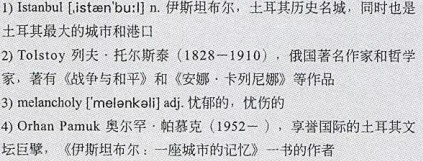
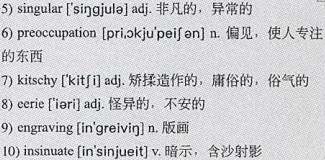
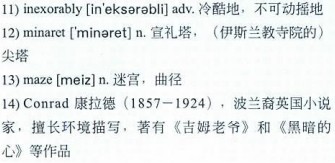
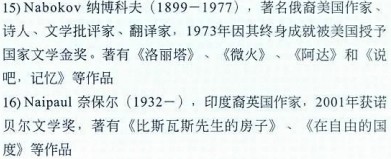
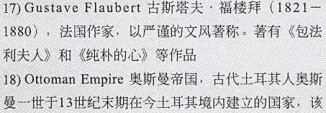

作者简介:  奥尔罕·帕慕克(Orhan Pamuk)(1952- ),当代欧洲最核心的三位文学家之一,是享誉国际的土耳其文坛巨擘。他出生于伊斯坦布尔,曾在伊斯坦布尔科技大学主修建筑。其作品《伊斯坦布尔:一座城市的记忆》于2005年荣获德国书业和平奖,帕慕克还因此书获得当年的诺贝尔文学奖提名。他的另一部作品《我的名字叫红》获得了包括法国文学奖、意大利格林扎纳·卡佛文学奖和都柏林文学奖在内的欧洲三大文学奖项。2006年帕慕克被授予诺贝尔文学奖,其获奖理由是:“在追求他故乡忧郁的灵魂时,发现了文明之间冲突和交错的新象征。”
奥尔罕·帕慕克(Orhan Pamuk)(1952- ),当代欧洲最核心的三位文学家之一,是享誉国际的土耳其文坛巨擘。他出生于伊斯坦布尔,曾在伊斯坦布尔科技大学主修建筑。其作品《伊斯坦布尔:一座城市的记忆》于2005年荣获德国书业和平奖,帕慕克还因此书获得当年的诺贝尔文学奖提名。他的另一部作品《我的名字叫红》获得了包括法国文学奖、意大利格林扎纳·卡佛文学奖和都柏林文学奖在内的欧洲三大文学奖项。2006年帕慕克被授予诺贝尔文学奖,其获奖理由是:“在追求他故乡忧郁的灵魂时,发现了文明之间冲突和交错的新象征。”
